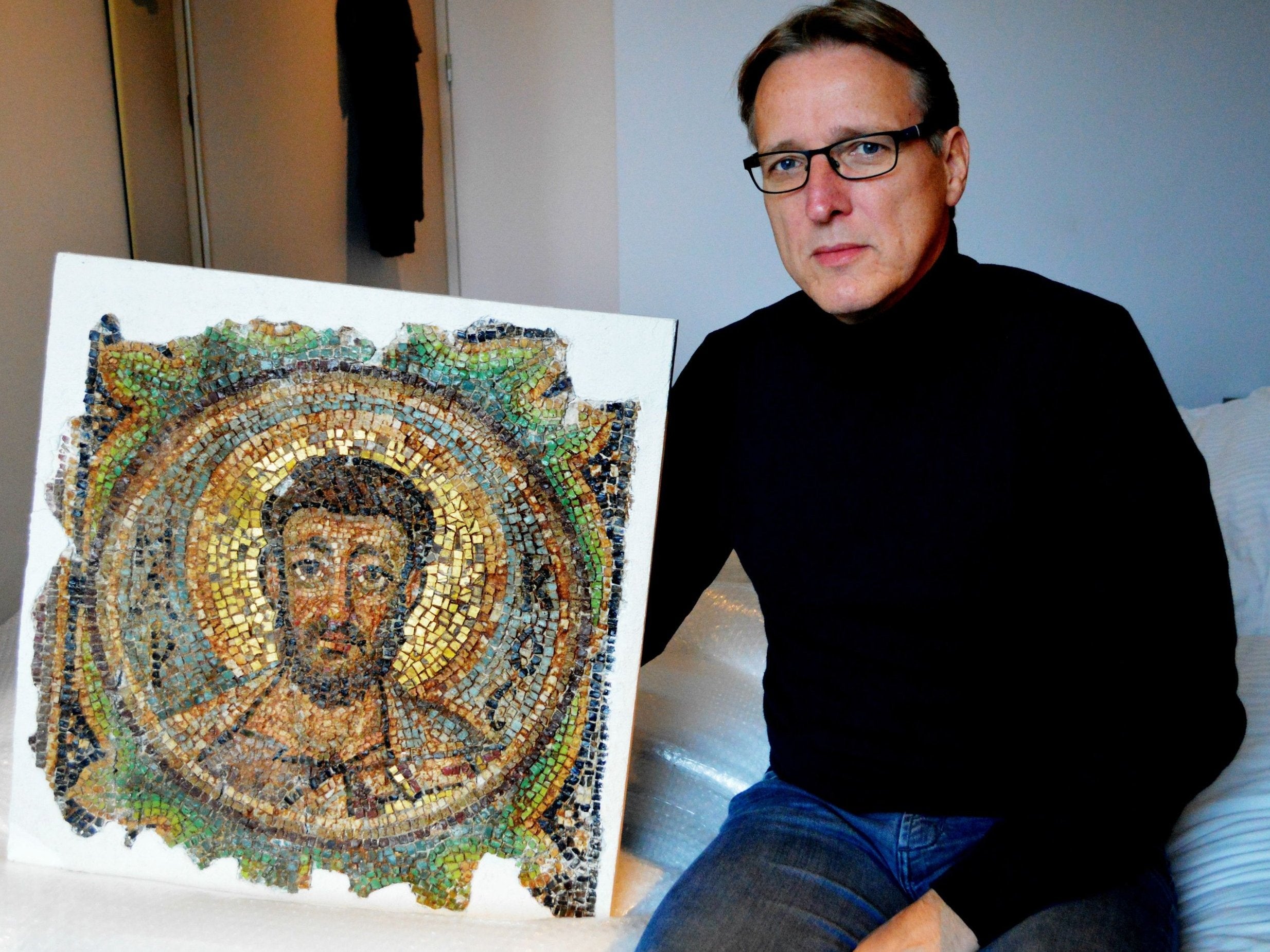Art detective tracks down missing 1,600-year-old mosaic in Monaco
Historian dubbed ‘Indian Jones of art’ discovers Cypriot treasure after three-year hunt

Art crime detective Arthur Brand has found a 1,600-year-old mosaic stolen from a church in Cyprus more than 40 years ago.
The Dutch historian, dubbed “the Indiana Jones of the art world”, discovered the sixth century Byzantine artwork inside a flat in Monaco owned by a British family.
The location of the mosaic of Saint Mark has remained a mystery since it was looted from the Panayia Kanakaria church in Lythragomi in the aftermath of the Turkish invasion in 1974.
Mr Brand finally tracked it down to a family home in Monaco after hunting for it across Europe for three years.
“The current owner inherited the mosaic by his father who, back in the seventies, bought it without knowing that it was stolen,” the historian explained. “After a long talk we agreed that the mosaic will return to Cyprus where it belongs.”
He said the British man wished to remain anonymous.
“It was a journey which I will never forget,” said Mr Brand. “I got all the support needed by the Church of Cyprus and the Cypriot government. They expressed to me the importance of this particular mosaic for the heritage of Cyprus.”
The art crime investigator said the mosaic – believed to have been created around 550 AD – was “not only a priceless and unique piece of Cypriot cultural heritage, it is part of the Cypriot soul".
Mr Brand has built a reputation as a super-sleuth when it comes to solving art crimes and discovering lost antiquities.
In 2016, he told The Independent how he tracked down Salvador Dali’s 1941 surrealist work Adolescence and Polish art deco painter Tamara de Lempicka’s La Musicienne after they were stolen from a Dutch museum by a masked gang.
He has also tracked down Nazi horse statues that once stood outside Adolf Hitler’s office in Germany.
The relic hunter presented the Byzantine mosaic to the Cypriot Antiquities Department and the Church of Cyprus at The Hague in the Netherlands on Friday. It arrived back in Cyprus on Sunday.
Join our commenting forum
Join thought-provoking conversations, follow other Independent readers and see their replies
Comments